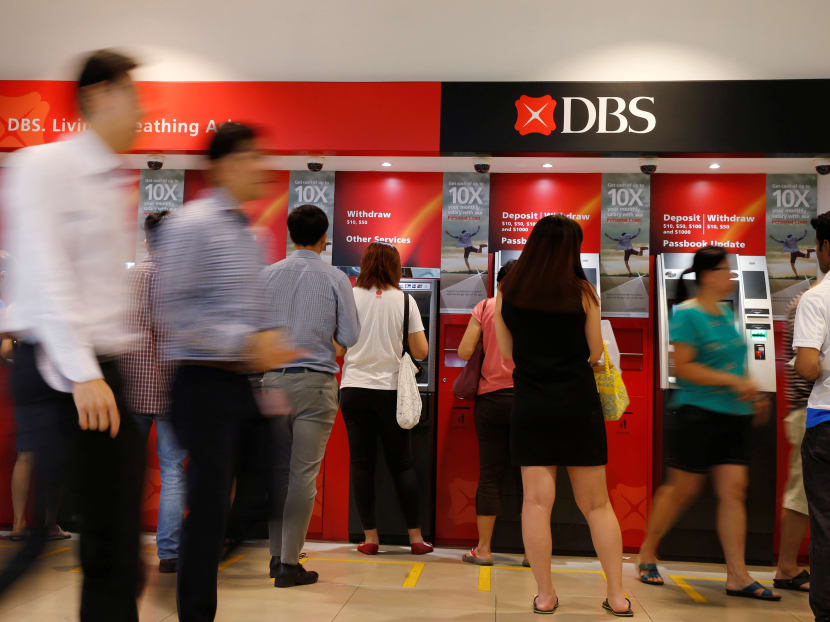6 months’ jail for man who called number on coffee shop toilet door, got swept up in S$1.89m DBS loan scam
SINGAPORE — When Muhammad Fazly Laily called a telephone number written on the back of a coffee shop toilet door in order to get fast cash, he heeded instructions to apply for a loan from DBS bank.

Muhammad Fazly Laily applied for a loan through a stranger. He received a loan of S$11,400 under the DBS Cashline scheme and used the money even though he knew he did not qualify to get the loan.
- Muhammad Fazly Laily wanted some fast cash due to his low monthly salary
- He came across a handwritten message and number on the back of a door in a coffee shop washroom
- A man got him to apply for a DBS Cashline loan, but the application was ultimately submitted on his behalf with fake supporting payslips
- Fazly kept the S$11,400 “loan” and used it to pay for massages, food and sexual services
SINGAPORE — When Muhammad Fazly Laily called a telephone number written on the back of a coffee shop toilet door in order to get fast cash, he heeded instructions to apply for a loan from DBS bank.
Upon receiving S$11,400 in his bank account, he knew he was not eligible to get such a large sum but withdrew it anyway, spending it on massages, food and sexual services.
His bank loan application was one among more than 150 fraudulent ones that DBS received. The bank ultimately disbursed S$1.89 million within about two months before a bank fraud officer made a police report.
For his role in the scheme, Fazly, 28, was jailed for six months on Thursday (Oct 28). The jail term will kick in when he has completed serving his current sentence for drug-related offences.
The Singaporean pleaded guilty to a single charge of acquiring property that directly represented another person’s benefits from criminal conduct — that is, cheating and dishonestly inducing the delivery of property.
The court heard that Fazly was earning S$600 to S$700 a month as a freelance video technician when he went to a coffee shop near Aljunied MRT Station at the end of March 2019.
He then saw a handwritten message on the back of a toilet door, which read “need cash call this number HP”. Not knowing who had written it, he called the mobile phone number.
When a man picked up, Fazly asked if he could get any amount of cash as a loan, and whether the loan would be legal or illegal.
The man replied that if the loan were illegal, there would be no way that Fazly could obtain it from POSB, which is owned by DBS.
Because Fazly was only thinking about getting the cash, he did not ask the other man for his name or where he worked. He also did not ask how the man could get a loan, the court heard.
He also felt that it was necessary to provide the bank his salary information if he needed a bank loan, as the bank needed to check if the borrower could repay the loan.
Fazly then told the man over the phone that he wanted to apply for a loan and needed S$5,000 to S$10,000. He believed that he was not eligible due to his low salary, but decided to try his luck.
At the man’s request, Fazly provided photos of the front and back of his National Registration Identity Card, credit bureau report, the personal identification number of his POSB account, the account number and his Singpass login ID and password.
The man then told him that the application would take one to two weeks.
Fazly claimed that he later lost his mobile phone and could not remember the number he called, so he decided not to contact the man about the loan any more.
On April 11, 2019, he checked his POSB bank account and found that he had received a loan of S$11,400 under the DBS Cashline scheme.
He realised that this was higher than the sum that he had told the man, and believed it was impossible for the bank to have given him this loan because he was not eligible for it. He proceeded to use the money anyway.
When the police’s Commercial Affairs Department began probing the fraudulent loans, investigations revealed that a DBS Cashline application had been submitted in Fazly’s name together with the fake supporting payslips, which showed he earned a monthly salary of S$4,660 from an engineering firm.
Court documents did not explain why the perpetrators of the scam had not obtained the loan money from Fazly.
Fazly did not voluntarily repay the loan. Only about S$300 was recovered due to forced deductions from his bank account.
He could have been jailed for up to 10 years or fined up to S$500,000, or punished with both.








